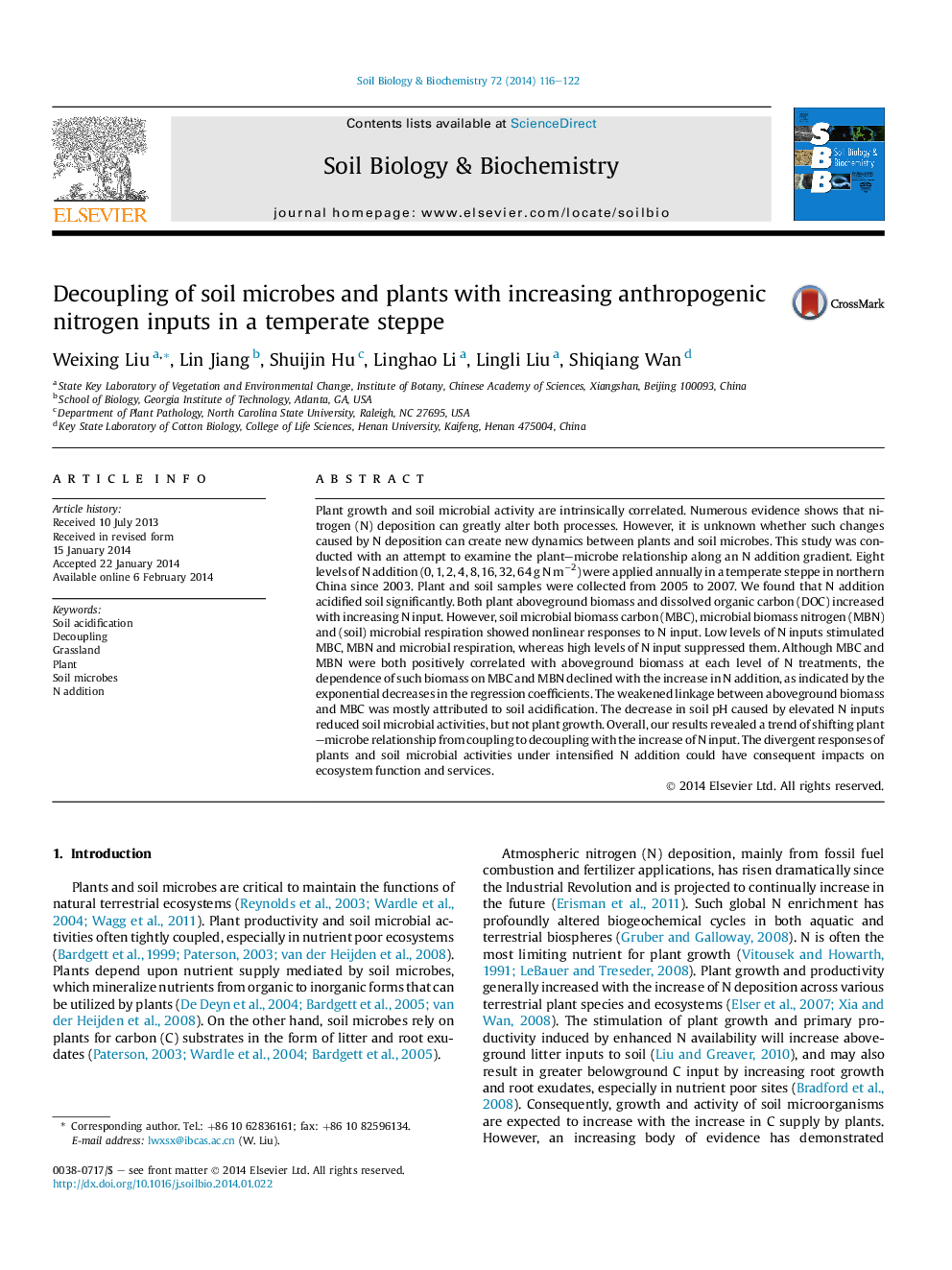| Article ID | Journal | Published Year | Pages | File Type |
|---|---|---|---|---|
| 8364870 | Soil Biology and Biochemistry | 2014 | 7 Pages |
Abstract
Plant growth and soil microbial activity are intrinsically correlated. Numerous evidence shows that nitrogen (N) deposition can greatly alter both processes. However, it is unknown whether such changes caused by N deposition can create new dynamics between plants and soil microbes. This study was conducted with an attempt to examine the plant-microbe relationship along an N addition gradient. Eight levels of N addition (0, 1, 2, 4, 8, 16, 32, 64 g N mâ2) were applied annually in a temperate steppe in northern China since 2003. Plant and soil samples were collected from 2005 to 2007. We found that N addition acidified soil significantly. Both plant aboveground biomass and dissolved organic carbon (DOC) increased with increasing N input. However, soil microbial biomass carbon (MBC), microbial biomass nitrogen (MBN) and (soil) microbial respiration showed nonlinear responses to N input. Low levels of N inputs stimulated MBC, MBN and microbial respiration, whereas high levels of N input suppressed them. Although MBC and MBN were both positively correlated with aboveground biomass at each level of N treatments, the dependence of such biomass on MBC and MBN declined with the increase in N addition, as indicated by the exponential decreases in the regression coefficients. The weakened linkage between aboveground biomass and MBC was mostly attributed to soil acidification. The decrease in soil pH caused by elevated N inputs reduced soil microbial activities, but not plant growth. Overall, our results revealed a trend of shifting plant-microbe relationship from coupling to decoupling with the increase of N input. The divergent responses of plants and soil microbial activities under intensified N addition could have consequent impacts on ecosystem function and services.
Related Topics
Life Sciences
Agricultural and Biological Sciences
Soil Science
Authors
Weixing Liu, Lin Jiang, Shuijin Hu, Linghao Li, Lingli Liu, Shiqiang Wan,
